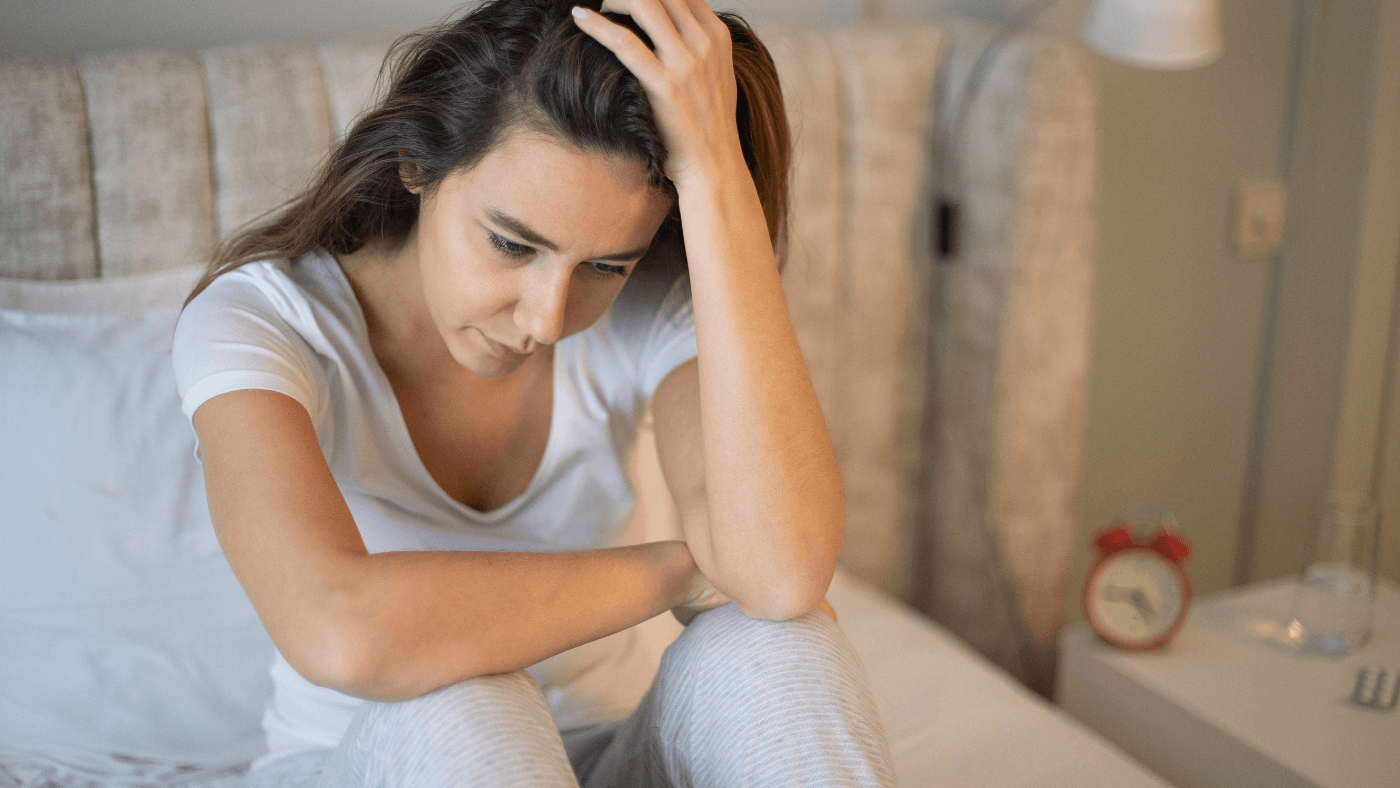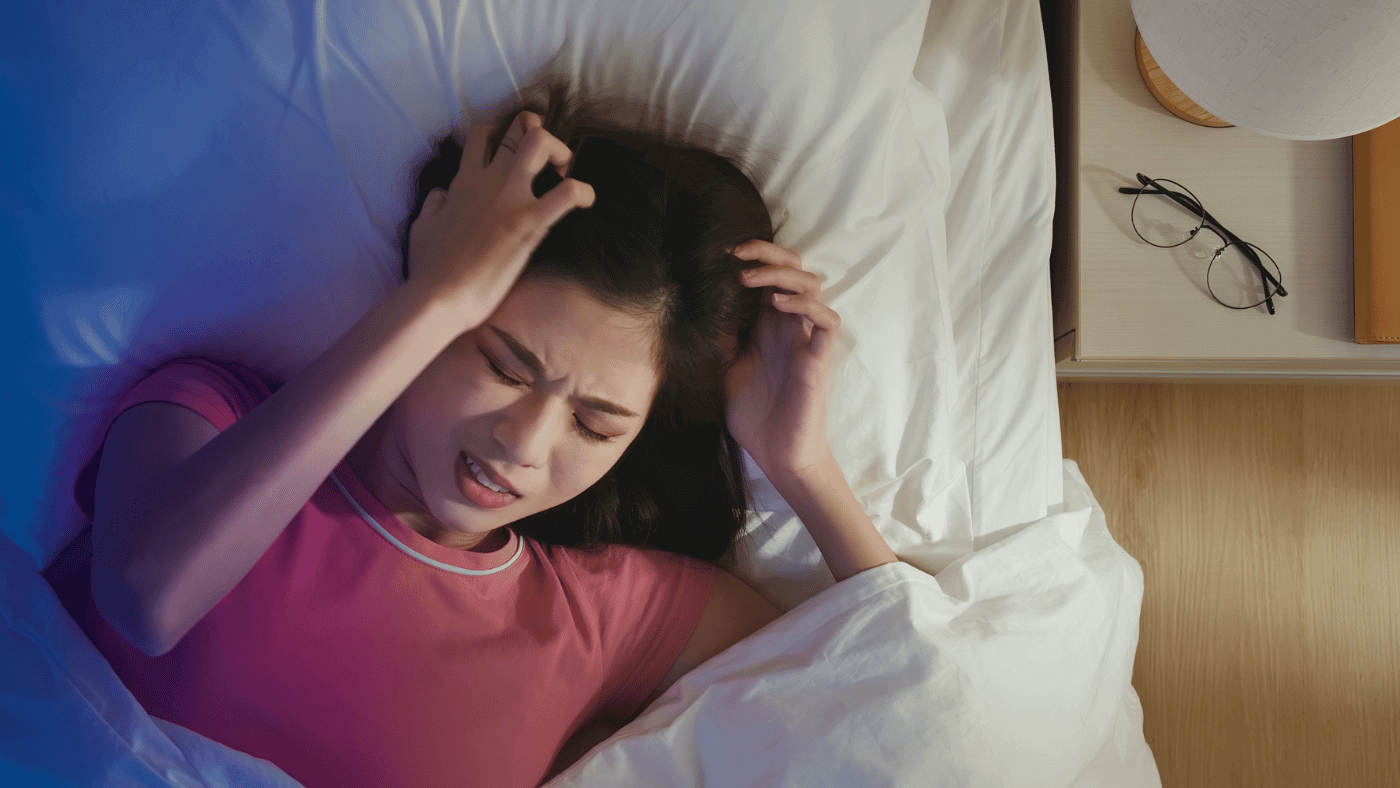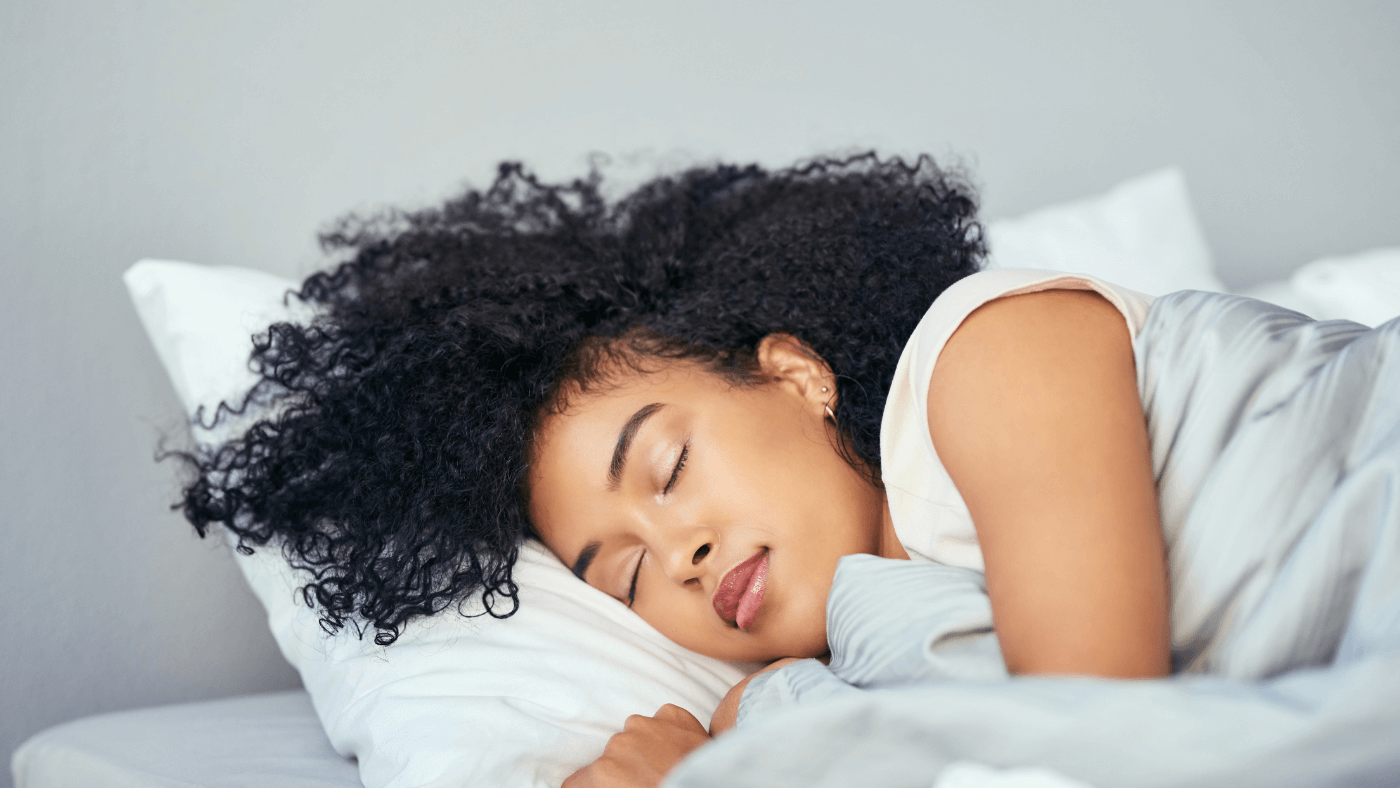The causes of insomnia are as varied as insomnia treatments, but the key is educating yourself on the topic to better understand and address your individual situation. Whether you’re struggling with acute insomnia or chronic insomnia, this frustrating sleep disorder can cause chronic pain and a host of other long term health conditions and side effects.
Insomnia can literally leave you sleepwalking through your days—listless, unaware, and experiencing delayed response times that may even put you at risk of injury.
If you’re curious about how you can fall asleep faster and stay asleep without waking up too early, this article will dig into all the details on sleep disorders, sleep habits, sleep patterns, and sleep problems. So dim the lights, cozy up, and read on to get to the bottom of insomnia treatments and better, restful sleep.
Insomnia is more than just not being able to fall asleep at night. It can also be waking too early and being unable to fall back asleep or a pattern of broken, restless sleep. This can lead to fatigue, irritability, and difficulty concentrating or remembering things. It can also go hand in hand with other health issues, like chronic pain or disease, mental health issues, and certain medications.

Types of Insomnia
Sleep impacts every other aspect of your overall well-being, from physical to mental and emotional. Not getting enough sleep—or high-quality sleep—can leave you exhausted, at a higher risk of injury, and even feeling hopeless about your situation. The first step to getting a handle on the issue is to narrow down exactly what kind of insomnia you’re experiencing.
The most common types of insomnia include:
Acute insomnia. Short-term sleeping difficulties which usually only last a few weeks.
Chronic insomnia. This affects your sleep for three or more days each week on a regular basis and lasts for months at a time.
Onset insomnia. Difficulty falling asleep may be caused by caffeine use, mental health symptoms, or other triggers. It’s important to note that this type can develop with other sleep disorders, as well.
Maintenance insomnia. Difficulty staying asleep once finally falling asleep, or consistently waking up too early. This type of insomnia can relate to underlying physical or mental health symptoms.
Acute and chronic insomnia. Acute insomnia may be caused by stress, a change in sleeping habits (like a work shift change), illness, or jetlag, to name a few. Chronic insomnia, on the other hand, relates more to chronic pain, physiological issues, sleep apnea, and other health conditions.
Insomnia symptoms
There’s a lot more to insomnia than just not sleeping well, and the impact it has on your overall health is far-reaching. It may be tempting to not prioritize your sleep hygiene in favor of other, more demanding things in your busy life. However, when you realize just how much poor sleep can take its toll on you, and what can improve in your life if you invest in your sleep health, it can be a true game changer.
Some symptoms of insomnia are more obvious than others, so it’s a good idea to familiarize yourself with them so you can better pinpoint the issue within yourself.
- Waking earlier than you’re meant to but being unable to go back to sleep.
- Lying awake in bed worrying that you won’t fall asleep
- Consistently broken and restless sleep
- Being unable to fall asleep once you’ve laid down for bed
- Fatigue
- Mood swings, particularly toward negative emotions like irritability and depression
- Poor concentration and memory recall
- Feeling sleepy at a certain time in the day
- Being more accident or mistake prone
Causes of insomnia
Now that you’ve familiarized yourself with the different types and symptoms of insomnia, you may be wondering what causes all these negative effects. The answer, just like in the last two sections, is quite varied.
Some symptoms of acute insomnia can include:
- Stress
- Unresolved trauma, both recent and past
- Sudden new changes to your sleep habits, such as a different location or addition to your routine, like a new partner or baby
- Physical ailments, including passing pain or illness
- Jet lag
- New medications your body is adjusting to
Some symptoms of chronic insomnia can include:
- Pain that causes chronic inflammation, like arthritis
- Mental health concerns, including anxiety, depression, or substance abuse
- Sleep disorders like sleep apnea
Other, less apparent health conditions can also disrupt your sleep in the long run, including diabetes, cancer, cardiovascular disease, and intestinal issues.

Insomnia Risks
When addressing your insomnia for long-term results, it’s important to remember that while some causes may be out of your control—like a sudden life change or chronic illness—some small lifestyle changes can have a big, lasting impact on your sleep health.
There are some issues that can make you most susceptible to insomnia, while other activities can even aggravate the issue.
While anyone can develop both short and long-term insomnia, you may be at a higher risk if you’re entering older adulthood or you’re about to or are currently experiencing menopause.
Factors that can worsen insomnia include:
- High-stress levels
- An overly sedentary lifestyle
- An irregular sleeping and waking schedule
- Taking naps throughout the day
- Drinking too much caffeine
- Alcohol and tobacco
- Winding down with too much blue light at night
Insomnia Treatments
As hopeless as you may feel after consistently poor sleep, there are several insomnia treatments, including therapy, medication or supplements, and natural remedies.
Cognitive behavioral therapy is recommended by the American College of Physicians, specifically CBT-I, which consists of several techniques to treat insomnia.
Stimulus control: Consists of engaging in a relaxing activity until you feel sleepy, reducing the time you spend lying awake in bed.
Sleep restriction: This technique consists of regulating the amount of time you spend in bed—minimal in the beginning, then gradually increasing it—to improve sleep efficiency and quality.
Bright light therapy: This revolves around exposing yourself to bright light in the morning or evening. The timing of this technique depends on whether you have more trouble falling asleep or staying asleep.
Medications, supplements, and over the counter sleep aids, like melatonin, can also be utilized to manage insomnia. There are also lifestyle changes to consider, such as meditation and even acupuncture, to help ease insomnia symptoms. Aromatherapy with essential oils for better sleep have also been found to promote a better night’s rest, including chamomile, cedarwood, lavender, sandalwood, and neroli.

Insomnia is a serious disorder that can greatly impact all aspects of your life, so it’s essential that you take your health seriously and talk to a professional to get to the bottom of whatever is disrupting your sleep. With education, professional help, and a well-rounded approach, you can lay your head on your pillow at night and be secure in the knowledge that you’ll be rested and ready to go the next day.
Want to know everything going on in natural health and beauty? Sign up for BVU's newsletter. You can also follow along on Instagram and Facebook.




